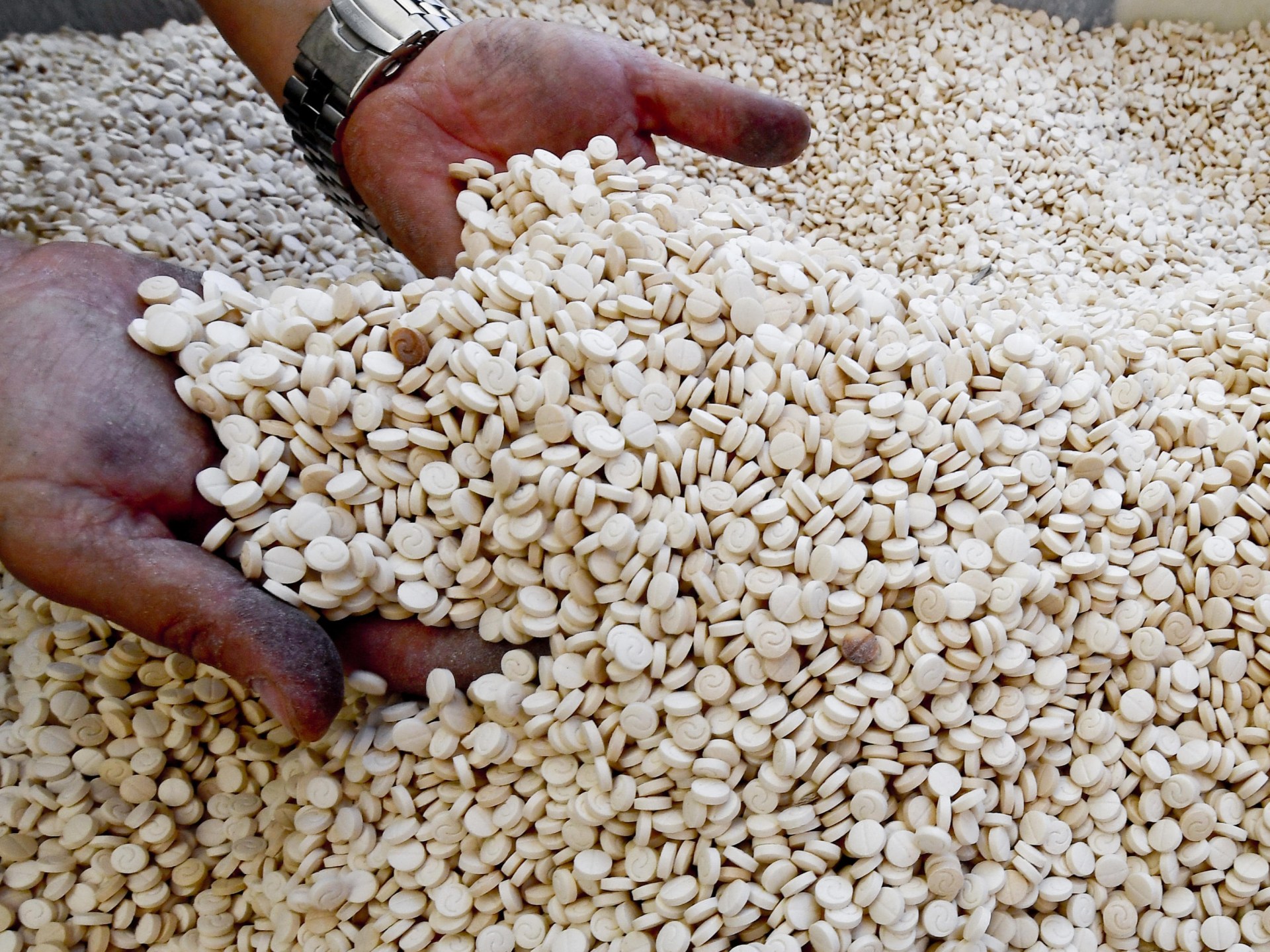On Sunday, December 25, the Jordanian Customs Department announced that it had thwarted the smuggling of 6 million pills of Captagon through the Al-Karama customs center at the border with Iraq.
This came one day after US President Joe Biden signed a bill to combat the Captagon manufactured by the Syrian regime.
Over the past years, Jordan has witnessed hundreds of smuggling attempts, especially from Syria (north) and Iraq (east), as a result of the deteriorating security situation in the two neighboring countries.
In a statement published by Al-Mamlaka TV (government) on its official website, the customs stated that its cadres at the Al-Karama border customs center (Iraqi borders) - in cooperation and coordination with the security services - managed to thwart the smuggling of 6 million pills of the narcotic Captagon.
The statement indicated that this quantity is equivalent to "one thousand kilograms (one ton) and was found hidden inside date paste within a shipment of date cartons."
A week ago, both houses of the Congress approved a draft resolution that lays down a strategy to stop drug production and trafficking, and to dismantle networks linked to the regime of Syrian President Bashar al-Assad.
On December 10, the US House of Representatives approved the country's defense budget bill for the next fiscal year 2023, at an amount of $858 billion, and it includes a project to dismantle the Syrian regime's production of the drug Captagon.
What are Captagon pills?
Captagon pills, with its scientific name Fenethylline, were manufactured from a mixture of amphetamine, a central nervous system stimulant, and theophylline.
This drug was manufactured beginning in 1961, and was then used to treat children with attention deficit hyperactivity disorder (ADHD) or as an alternative treatment for narcolepsy and depression.
On the other hand, Captagon pills are very addictive, which is precisely why they have been illegal in most countries of the world since 1986.
Syria is the largest producer of Captagon
On September 19, the French newspaper "Le Figaro" said that Syria has become the largest producer of Captagon in the world, and Jordan and Lebanon are among its corridors, noting that 250 million pills have been seized since the beginning of this year.
There are 4 commercial types of Captagon in Syria: yellow, white, crystal, and brown.
A study published by the New Lines Institute for Strategic and Political Studies in Washington on April 5 showed that the manufacture and trade of Captagon pills has become deeply rooted in Syria's economy after the war, and that the main destinations for this trade are the Gulf, North Africa and Southern Europe.

